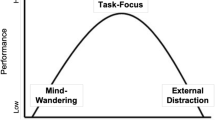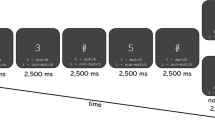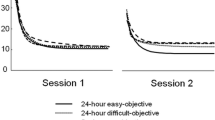Abstract
The psychomotor and cognitive abilities of experienced professional divers participating in training and experimental dives in a hyperbaric chamber were investigated during experiments at high ambient pressure of either air or hydrogen-helium-nitrogen-oxygen mixtures. Decrements in psychomotor ability were not as large as decrements in cognitive ability: manual dexterity was 2–16 %, number ordination 4–46% below control. To determine the respective roles of inert gases and pressure per se, the data were compared with lipid solubility theories of narcosis. This analysis indicated that impairment of cognitive ability was a consequence of the narcotic action of the inert gases, whereas impairment of motor ability was a consequence of the raised pressure per se.
Similar content being viewed by others
Author information
Authors and Affiliations
Additional information
Received: 3 July 1996 / Received after revision: 11 November 1996 / Accepted: 18 November 1996
Rights and permissions
About this article
Cite this article
Abraini, J. Inert gas and raised pressure: evidence that motor decrements are due to pressure per se and cognitive decrements due to narcotic action. Pflügers Arch 433, 788–791 (1997). https://doi.org/10.1007/s004240050346
Issue Date:
DOI: https://doi.org/10.1007/s004240050346




